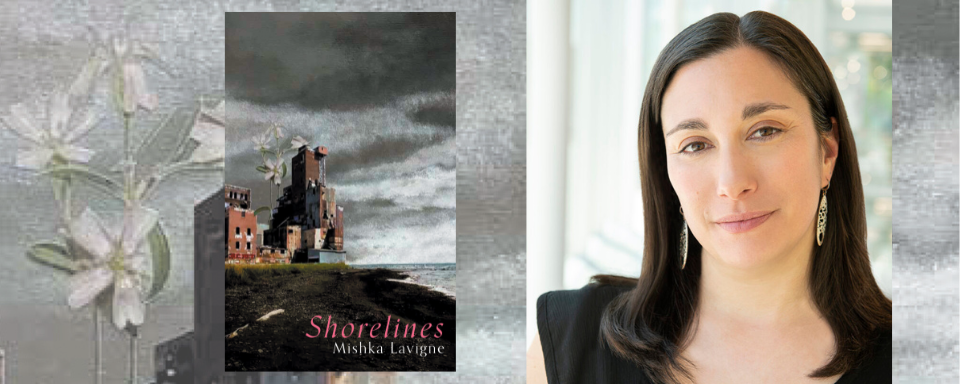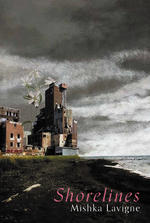
Author Interview: Mishka Lavigne
To honour Earth Day, we had the privilege of chatting with acclaimed playwright Mishka Lavigne, delving into the profound themes of climate justice as portrayed in her captivating work, Shorelines.
In the play Shorelines, you’ve created a very detailed and believable depiction of a not-too-distant world ravaged by the severe impacts of climate change. What kind of research or world-building did you undertake to bring this environment to life?
Mishka:
I did a lot of research on climate change, of course. There were a few horrifying realizations that my information was becoming out of date as I was writing the play between 2017 and 2019… including a 2021 UN report that no rain water on the planet is potable for human consumption, something that we didn’t know in 2017. I also researched information on communities displaced by rising waters and erosion (like the island nation of Tuvalu), but the main source of inspiration for this play is an article from 2017 about the “first” American climate refugees, residents of Isle Jean-Charles in Louisiana who were all being forced onto the mainland because of shore erosion due to stronger and stronger hurricanes in the Gulf of Mexico. These island communities include members of the Biloxi-Chitimacha-Choctaw tribe and also include communities built by freed enslaved peoples. By forcing people to leave Isle Jean-Charles, are you also killing the history of a place? What does it mean to leave, even if the conditions you are currently in are not the best? I think this is a question that is already becoming prevalent everywhere on the planet, and is bound to only be more and more brought to the forefront.
Climate change is a massive, multi-faceted topic to write about, but you’ve cleverly chosen to explore it through the intimate relationships of your characters. Can you tell us a little bit about your process of crafting fully fleshed out people in your plays and how you find the heart of your characters?
Mishka:
I think a subject like this can quickly become moralizing if characters are not fully fleshed-out, or if they’re secondary to the “message”. Of course the message is there, of course I want people who see or read the play to ask questions, to research topics, etc. But I also wanted to create an emotional attachment to the story, and that happens through characters, their relationships. Shorelines is a very bleak world, the only light is in the relationships between the characters of the play, and that’s what audiences can focus on.
A major conflict represented in Shorelines is the inequality faced by more vulnerable communities during disaster responses. We are already seeing this play out in the present because of longstanding power imbalances and systemic oppression. Do you think tackling climate change is about addressing social issues as well as carbon emissions?
Mishka:
I think everything in interconnected, everything is woven together. This is the main message of the play. Tackling one issue has repercussions on others and, inversely, attacking one group of people has repercussions on everyone else. We live in communities, and what we do affects others.
Today is Earth Day and environmental issues are becoming increasingly top of mind day by day. In your opinion, what do you think is one of the most important actions that can be taken right now, both by individuals and larger governing bodies, to help curb the current climate crisis?
Mishka:
I think being informed is key, and being informed through the correct sources. It’s becoming more and more difficult to pick out legitimate sources, especially on social media. I’m hoping we can have more legislation like Bill C-372 MP Charlie Angus brought forward a few weeks ago to legislate against misleading claims by fossil fuel giants.
I think individual actions can have a certain impact, but we’ll gain much more through grassroots movements, through lobbying, through community organizing, through holding companies and billionaires accountable (here’s hoping…) I feel we need to be ready to do more, much more. And it’s terrifying to think of what needs to be done, but it’s equally terrifying to think of what will happen if we don’t do it. The task feels daunting (and it is), but the only way we can make things better is together. (And I know this reads like an after-school special, I accept it, haha.)
***
Order your copy of Shorelines today!
Mishka Lavigne (she/her) is a playwright, screenwriter, and literary translator based in Ottawa/Gatineau. Her plays have been produced and developed in Canada, Switzerland, France, Germany, Australia, Haiti, and the United States. Her play Havre was awarded the 2019 Governor General’s Literary Award for Drama (French). Her play Copeaux, a movement-based poetic creation piece with director Éric Perron, premiered in Ottawa in March 2020 and was also awarded the Governor General’s Literary Award for Drama in 2021 as well as the Prix littéraire Jacques-Poirier. Albumen, her first play written in English, received the Prix Rideau Award for Outstanding New Creation in 2019 and the QWF Playwriting Prize in 2020. Mishka is currently working on a bilingual opera libretto with Montreal composer Tim Brady and on four new creations in French, as well as on some translation and screenwriting projects.


Comments